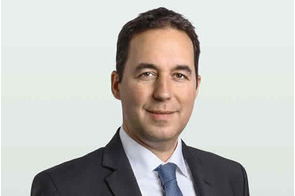Access Bank unlocking the potential of sustainable finance with accelerator programme

Summary
In the face of mounting climate risks, social inequalities, and resource scarcity, the call for sustainable finance is louder than ever.
"The future of Africa lies in the hands of Africans, but it also requires the solidarity and support of the international community. Sustainable development is the pathway to the future we want for all." – Kofi Annan, former United Nations Secretary-General.
Africa is at a critical juncture, struggling with significant development challenges that threaten its economic stability and social progress. The continent is home to over 1.4 billion people, with a population growth rate of 2.7% annually, one of the highest in the world. With a rapidly growing population expected to reach 2.5 billion by 2050, the continent is at a crossroads where economic development must be balanced with environmental preservation and social equity.
Africa’s rapid population growth exacerbates issues such as poverty, inequality, and environmental degradation. Currently, over 40% of sub-Saharan Africa's population lives in extreme poverty, and this figure is expected to rise unless concerted efforts are made to address the continent's developmental needs.
One of the most pressing challenges is the significant gap in the financing needed to achieve the United Nations Sustainable Development Goals (SDGs) by 2030. According to the United Nations Economic Commission for Africa (UNECA), Africa requires approximately $2.5 trillion annually to meet the SDGs, yet the current financing falls short by about $200 billion per year. Traditional financing models have proven inadequate in addressing these gaps as only 43% of adults in Sub-Saharan Africa have access to financial services, making the case for sustainable finance more compelling than ever.
Moreover, Africa is particularly vulnerable to the impacts of climate change, which threatens to undo decades of development gains. The African Development Bank (AfDB) reports that climate change could cost African economies up to $50 billion annually by 2040 if left unchecked. This highlights the urgency for climate-resilient infrastructure and sustainable economic models that prioritise environmental protection, social equity, and economic viability.
Sustainable finance, which integrates environmental, social, and governance (ESG) considerations into investment decisions, offers a solution to these challenges. It is essential to drive Africa’s transition to a low-carbon, resilient, and inclusive economy. The United Nations estimates that achieving the SDGs in Africa will require an additional $1.2 trillion annually by 2030. However, current financial flows to the continent are far from sufficient, with foreign direct investment (FDI) declining by 5.4% in 2023, according to the United Nations Trade and Development (UNCTAD).
However, the current landscape of sustainable finance in Africa remains underdeveloped. Despite Africa's significant renewable energy potential, for instance, only 3% of global renewable energy investments are directed towards the continent. Additionally, the green bond market in Africa is still nascent, accounting for less than 1% of the global market. This underlines the need for innovative financing mechanisms, regulatory frameworks, and strategic partnerships to unlock the potential of sustainable finance in Africa.
In the face of mounting climate risks, social inequalities, and resource scarcity, the call for sustainable finance is louder than ever. The financial sector has a pivotal role to play in driving the transition to a low-carbon, inclusive economy. But the question we must ask ourselves is: Are we doing enough? Are we fully leveraging the potential of sustainable finance to create the innovative solutions and growth needed to make a lasting impact?
Access Bank is leading the charge in redefining the future of finance by integrating sustainability at the heart of its core. As one of Africa's leading financial institutions, the bank recognises that sustainable finance is not just a trend but a fundamental shift in the way business must be conducted. By incorporating ESG factors into our financial strategies, we are igniting innovation across industries. Through products like green bonds, social impact investments, and sustainability-linked loans, we are not only delivering financial returns but also fostering positive societal and environmental change. Our commitment to environmental stewardship and social responsibility is exemplified by the launch of our Sustainable Finance Accelerator Programme – a pioneering initiative designed to drive sustainable solutions across the continent, addressing global challenges with bold, visionary action.
The programme emerges as a natural evolution of Access Bank’s long-standing dedication to sustainable finance. It is not just a financial initiative, but a comprehensive ecosystem designed to empower sustainability-focused projects and businesses. It provides a robust platform where innovative ideas can be nurtured, refined, and ultimately transformed into impactful solutions that address some of Africa's most critical challenges.
At the heart of the programme lies a multifaceted approach aimed at fostering sustainable development on multiple fronts. Participants in the Access Bank Sustainable Finance Accelerator Programme receive personalised mentorship from seasoned experts in sustainable finance and entrepreneurship. These mentors bring a wealth of knowledge and experience, guiding participants through the complexities of developing and scaling sustainable ventures. This one-on-one mentorship is designed to empower entrepreneurs with the skills and insights needed to navigate the rapidly evolving landscape of sustainable finance.
Capacity building is another cornerstone of the programme. Through a series of targeted training sessions and workshops, participants gain deep insights into sustainable finance, climate risk management, and impact investing. These educational components are tailored to equip participants with the technical skills and strategic thinking required to create solutions that are not only innovative but also scalable and impactful. The programme’s focus on capacity building ensures that participants are well-prepared to tackle the challenges of sustainable development and contribute meaningfully to the global sustainability agenda.
Access to funding is a critical enabler of innovation, and the Sustainable Finance Accelerator Programme provides participants with multiple avenues for financial support. The programme offers access to loans, seed funding, and impact investment opportunities, ensuring that the most promising ideas receive the financial backing they need to thrive. This funding is crucial in helping participants move from concept to reality, enabling them to develop, pilot, and scale their projects in a way that maximises their impact on the environment and society.
Networking is another vital component of the programme, connecting participants to a global network of sustainable finance professionals, entrepreneurs, and organisations. This network provides participants with opportunities to collaborate, share knowledge, and access new markets, creating a dynamic ecosystem that supports the growth and success of sustainable ventures. Through these connections, participants are not only able to expand their reach but also to learn from the experiences of others, gaining insights that can help them overcome challenges and seize new opportunities.
The Sustainable Finance Accelerator Programme is not merely about fostering individual business success; it is about addressing some of the most pressing challenges facing Africa today. By targeting issues such as climate change, energy poverty, gender, and the need for sustainable infrastructure development, the programme is strategically positioned to catalyse transformative change across the continent. For instance, by supporting initiatives that reduce carbon emissions, promote renewable energy, and enhance climate resilience, the programme contributes directly to the global achievement of the UN SDGs.
In the realm of infrastructure, the programme is financing green projects that promote sustainable urban planning and development. These projects are not only environmentally friendly but also economically viable, contributing to the creation of resilient and sustainable cities across Africa. By focusing on sectors such as renewable energy, sustainable agriculture, green infrastructure, and eco-tourism, the programme is driving positive change that has the potential to transform the continent’s economic and environmental landscape.
The far-reaching impact of the Sustainable Finance Accelerator Programme of Access Bank is poised to make a substantial contribution to the achievement of the SDGs. Through its comprehensive approach, the programme is helping to build a more sustainable future for generations to come. By accelerating the development and implementation of sustainable finance solutions, Access Bank is not only contributing to the global sustainability agenda but also shaping a resilient and inclusive future for Africa.
Omobolanle Victor-Laniyan is Head, Group Sustainability, Access Holdings Plc.
Related
-
New report addresses climate change risks and opportunities in insurance
The report delves into the strategies and tactics needed to move forward in an evolving risk landscape.
-
Nigeria’s insurance sector: Growth beckons
From our research findings, it was discovered that the most common reasons for not having an insurance policy is ...
-
Access Bank wins 2020 International Investor Awards
The awards recognised the businesses that consistently delivered first-rate service, innovation and performance.










